Brain Fog: Symptoms, Causes, & Treatment
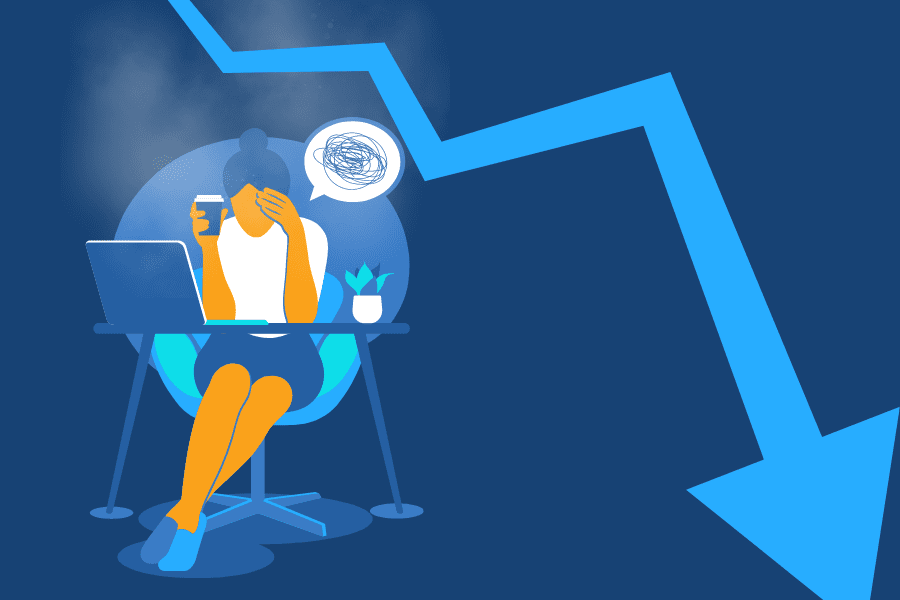

Brain fog is a term used to describe feelings and symptoms that affect a person’s ability to think.
Brain fog can affect a person’s ability to focus and think clearly, making it hard to remember things.
Many people experience brain fog from time to time, especially when they are stressed, tired, or sick. But sometimes, a person may feel that their brain fog is not going away.
Occasionally, many people experience mental fogginess or become mentally fatigued or forgetful, especially as they grow older.
But brain fog can happen to anyone at any age.
Brain fog can make a person feel mentally fatigued and fuzzy.
They may feel confused and find it hard to focus and concentrate on everyday things.
Brain fog can make it hard to complete everyday tasks or do things that one would consider easy and a normal part of their routine.
Moments of brain fog can range in severity.
For some, an example of brain fog could be walking into a room and forgetting what they went in there to do or you’re listening to a person talk and having trouble understanding what they are saying.
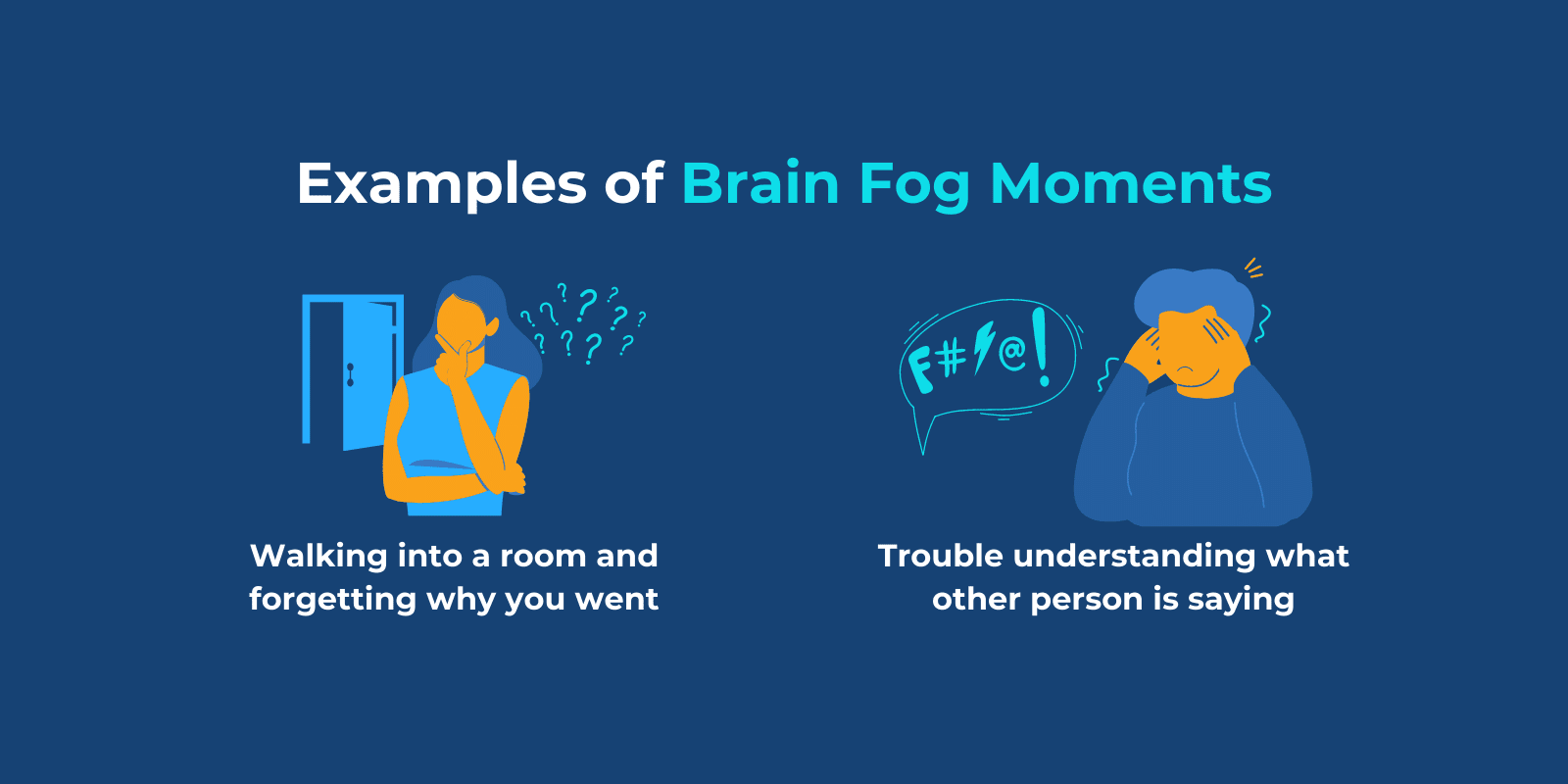
Occasional brain fog is fairly common, but a person should seek help if it affects their everyday life.
Brain fog can become a serious problem if left untreated.
It can impact a person’s life and make it very difficult to perform everyday tasks, keep up with responsibilities, and maintain important relationships.
Brain fog is not a mental illness but can be a symptom of common mental health conditions like stress, depression, or anxiety.
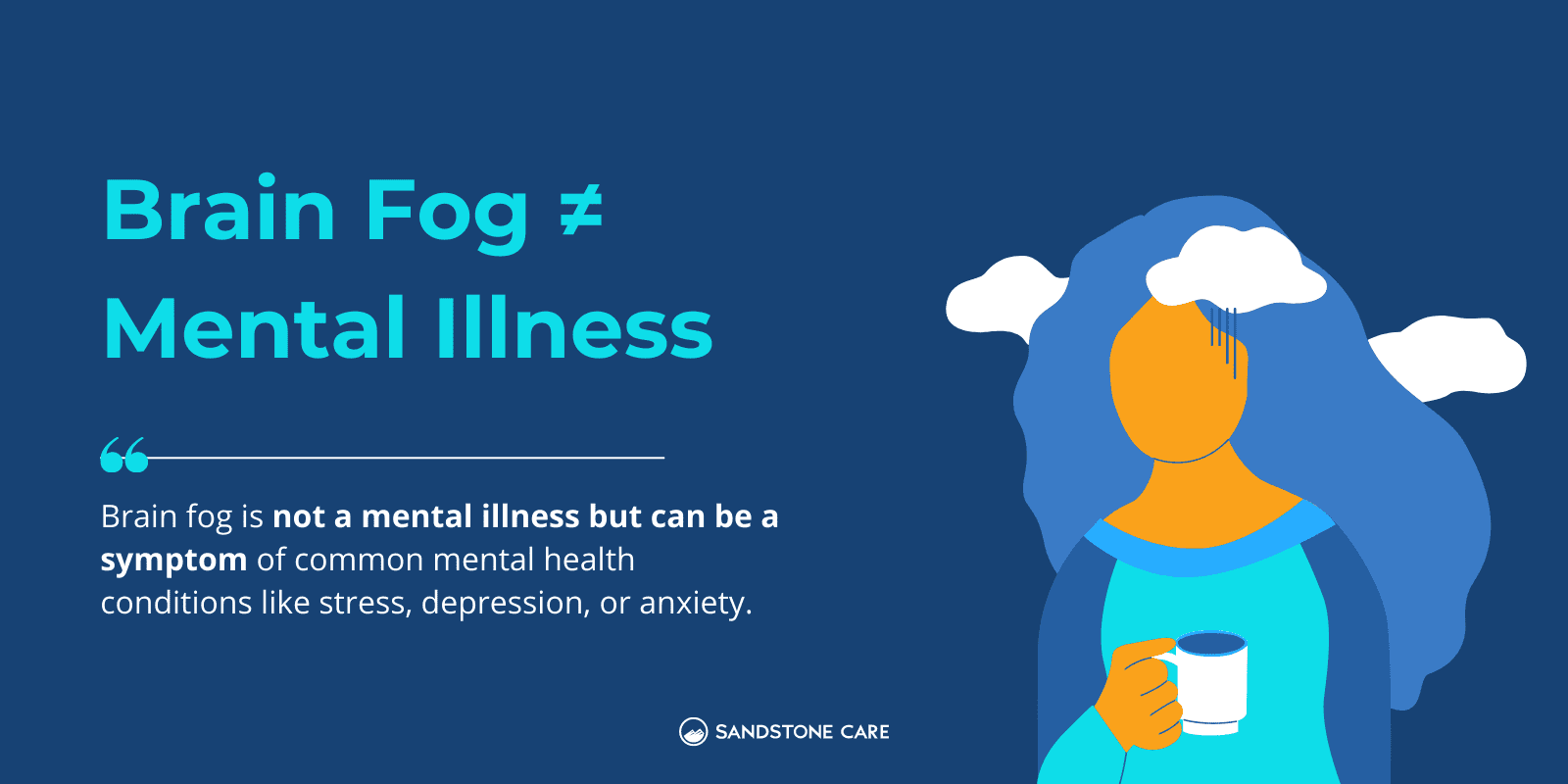
There can be numerous causes of excessive brain fog.
Brain fog may stem from certain mental health conditions, medications, drugs, medical conditions, hormonal imbalances, or stress, among many other things.
According to the Journal of Psychosocial Nursing and Mental Health Services, brain fog is commonly linked to neuroinflammation.
Neuroinflammation can be caused by infection, injury, neurodegenerative disease, or aging.
Brain fog may be caused by a number of different reasons, including:
Additionally, individuals going through menopause may also experience symptoms of forgetfulness, difficulty thinking clearly, and trouble concentrating.
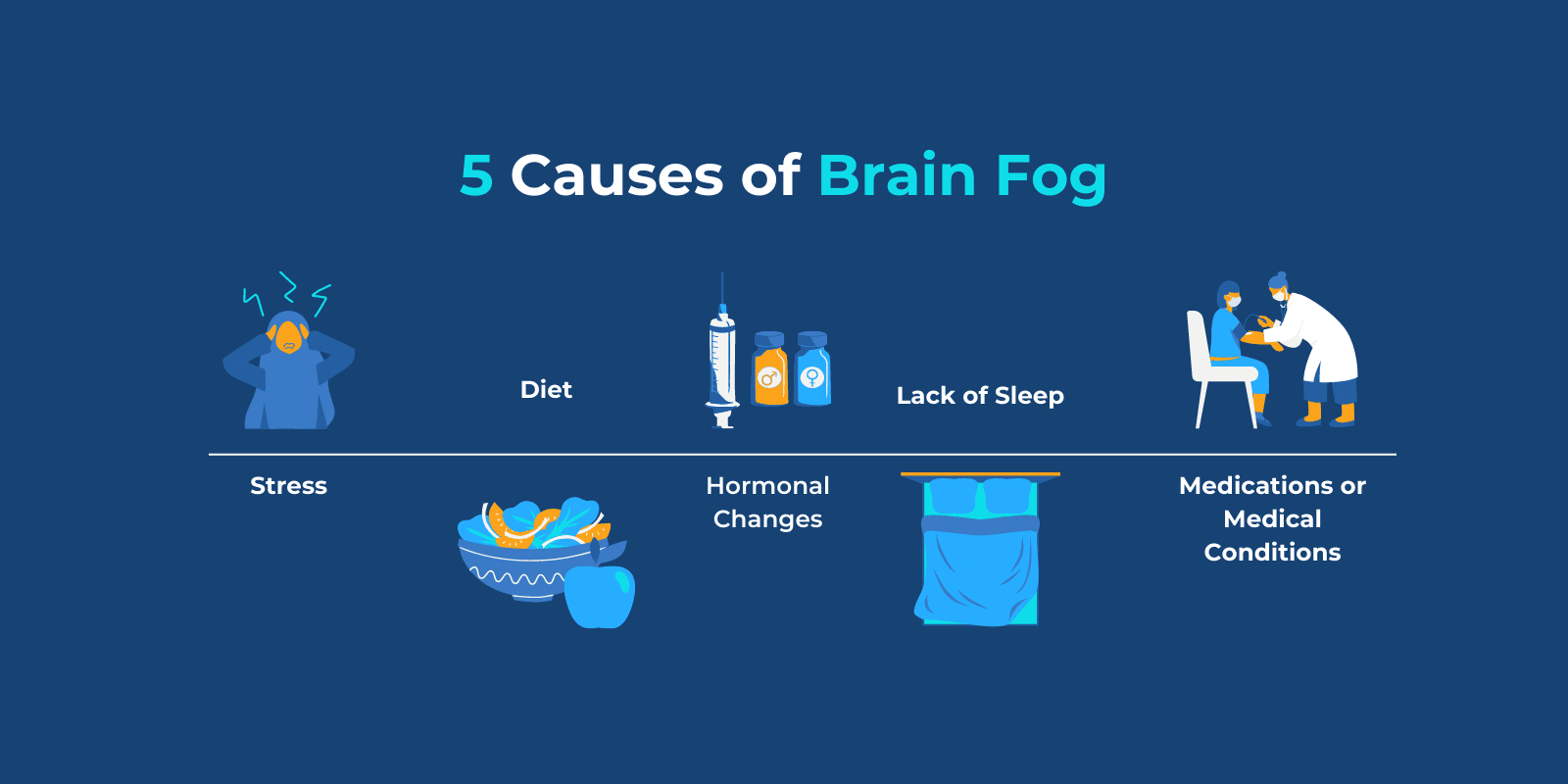
Brain fog may come as a symptom of overexertion, whether it be mentally or physically.
When a person becomes stressed, it can affect cognitive functions and cause a person to feel mentally fuzzy.
Overthinking and stress can affect a person’s mental health and make it very difficult to think clearly and concentrate on everyday things.
Many different conditions that occur in different organs of the body can contribute to brain fog.
Occurrences in the digestive system can lead to inflammation that increases symptoms of brain fog.
The liver also plays a big role in cleansing toxins and storing vitamins and minerals. Having problems with the liver can cause problems in the rest of the body, including brain functions.
Brain fog can stem from numerous medical conditions, like hypothyroidism, diabetes, lupus, and multiple sclerosis.
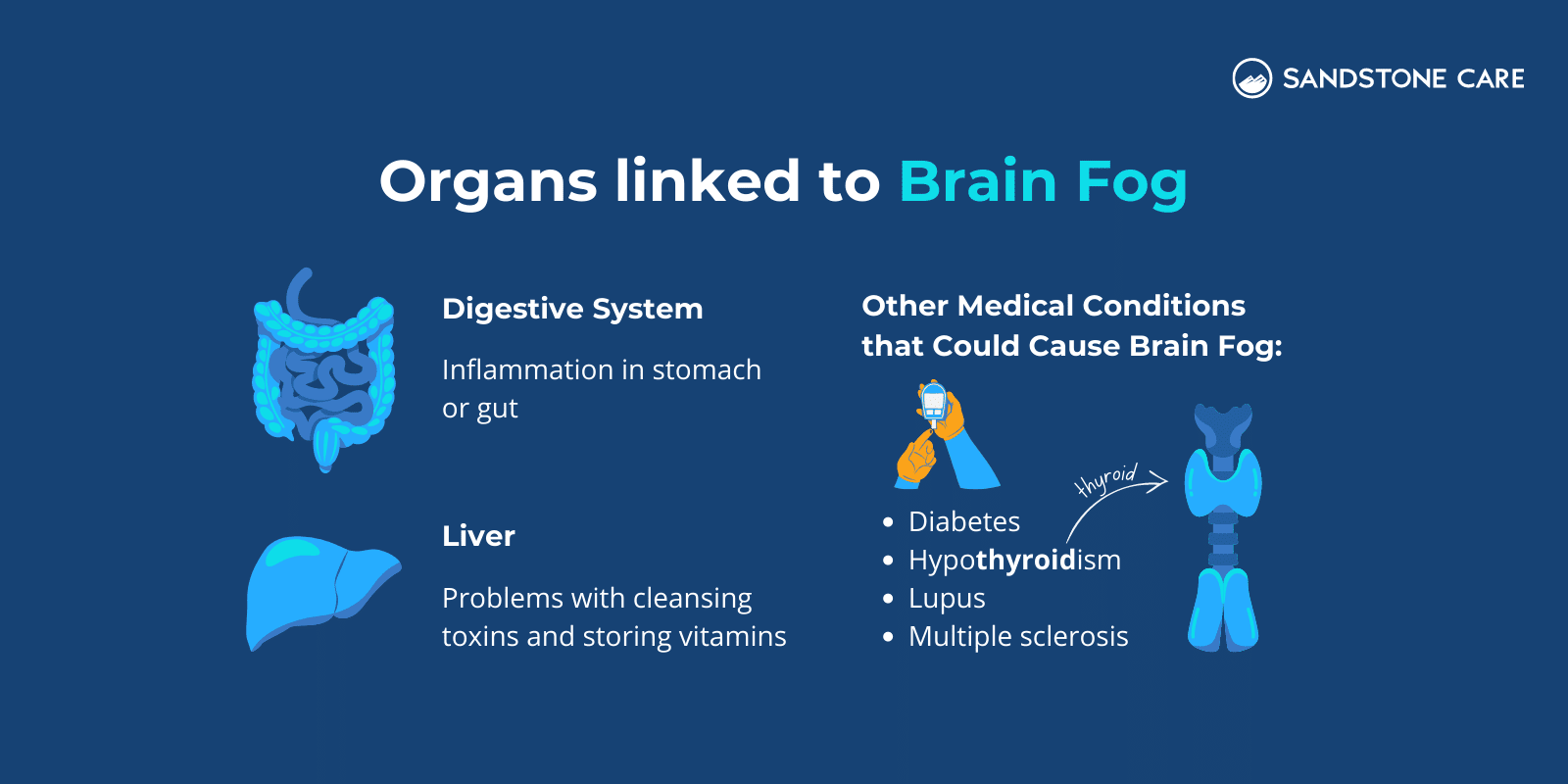
A person’s diet can be a major contributor to brain fog, along with dehydration.
When a person is not giving their body what it needs, it can affect the brain and its functioning.
A lack of necessary nutrients can cause problems throughout the body and mind.
There are several neurological disorders that can cause brain fog as a symptom, including:
These are some examples of neurological disorders that can cause brain fog, but there are many other conditions that can also cause this symptom. It’s important to consult a doctor if you are experiencing brain fog as they will be able to help you determine the cause and recommend appropriate treatment.
Vitamin deficiencies that may contribute to brain fog can include:
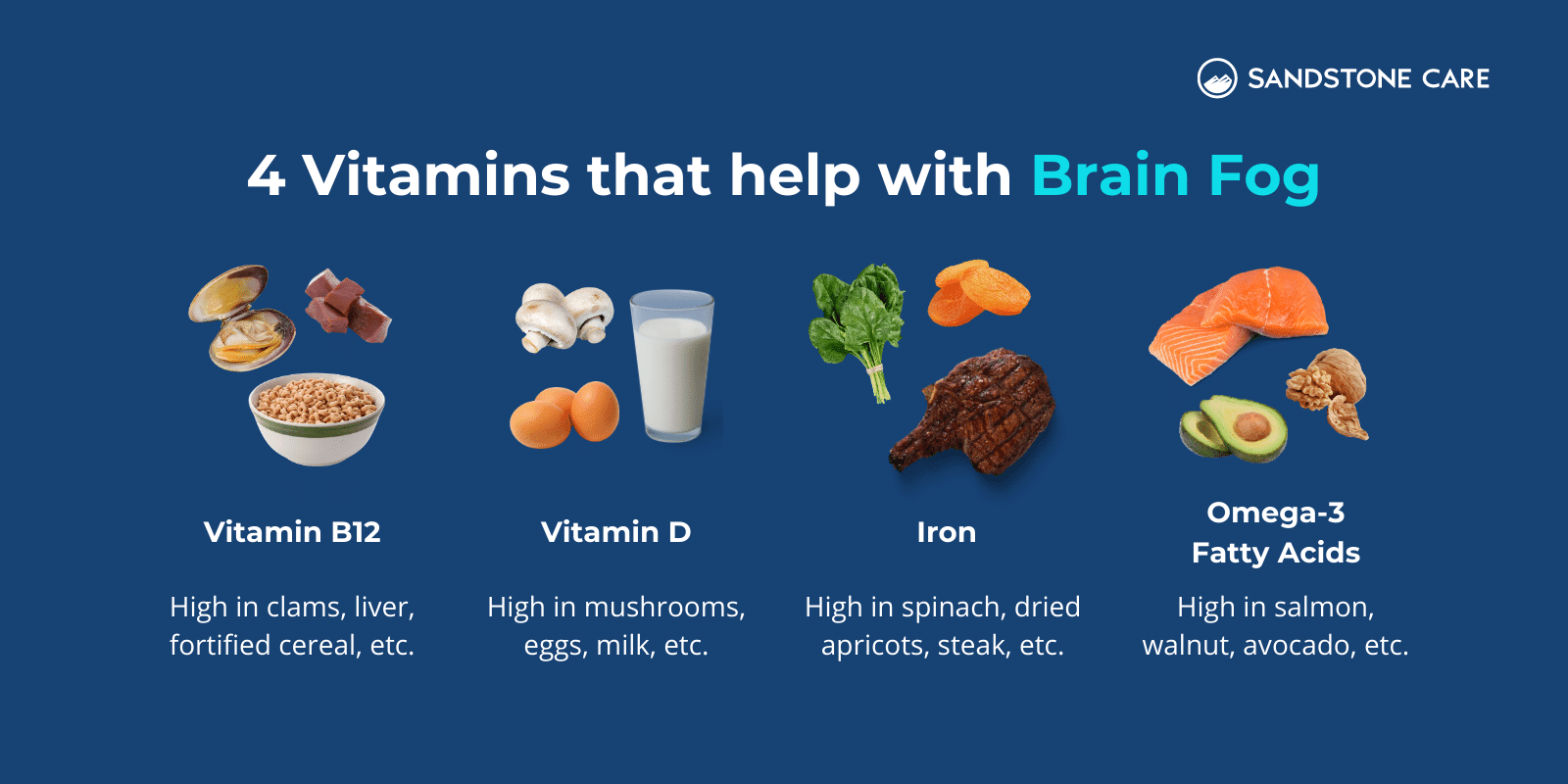
Common brain fog symptoms include impaired focus, memory issues, lack of mental clarity, confusion, and mental fatigue. These symptoms vary in severity from person to person and can make completing daily tasks like work assignments and chores more difficult than usual.
A person who is experiencing brain fog may also feel physical side effects.
This can include:
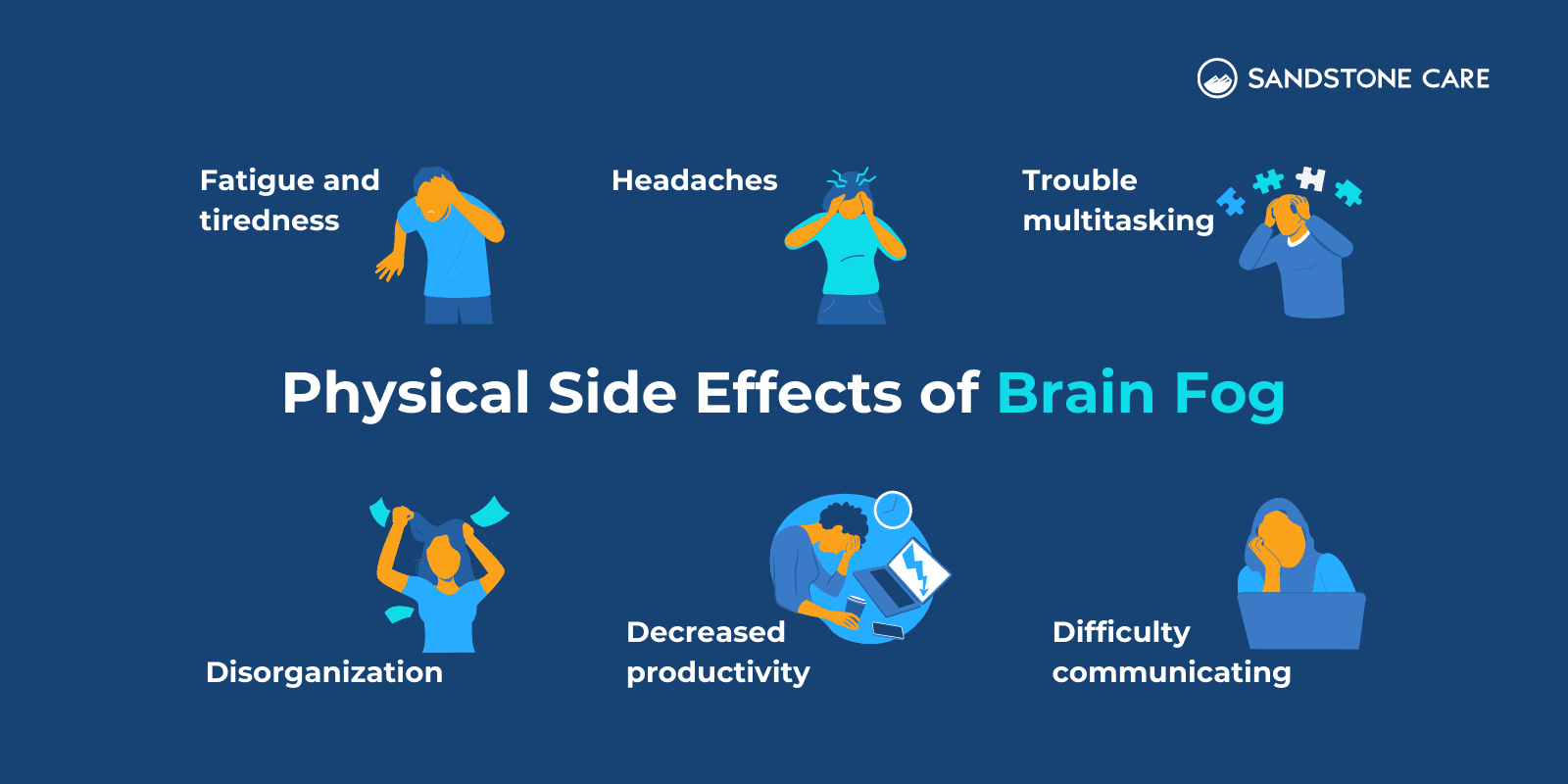
When a person experiences persistent feelings of brain fog, they should reach out for help.
Many people experience brain fog occasionally or at some point in their life, possibly from stress or lack of sleep. For some, it goes away on its own. But, for others, there may be an underlying problem that is causing brain fog.
It is important to find the root cause of the problem so that a person receives proper treatment. The longer it goes on, the more serious it can become.
Brain fog can make a person feel unlike themselves.
It can make a person feel weird or out of character. They may find it hard to carry out daily responsibilities, maintain relationships, or understand others.
Brain fog is not a medical condition that requires a clinical diagnosis.
It is more so a term that is used to describe feelings of mental sluggishness, fatigue, and forgetfulness.
However, brain fog can often be a symptom of medical and mental health conditions that require a diagnosis.
When a person is experiencing brain fog, a doctor may assess their mental health, diet, physical activity, and current medications or supplements.
They will also often do blood tests that can help them see if there are any deficiencies or imbalances that may be causing brain fog.
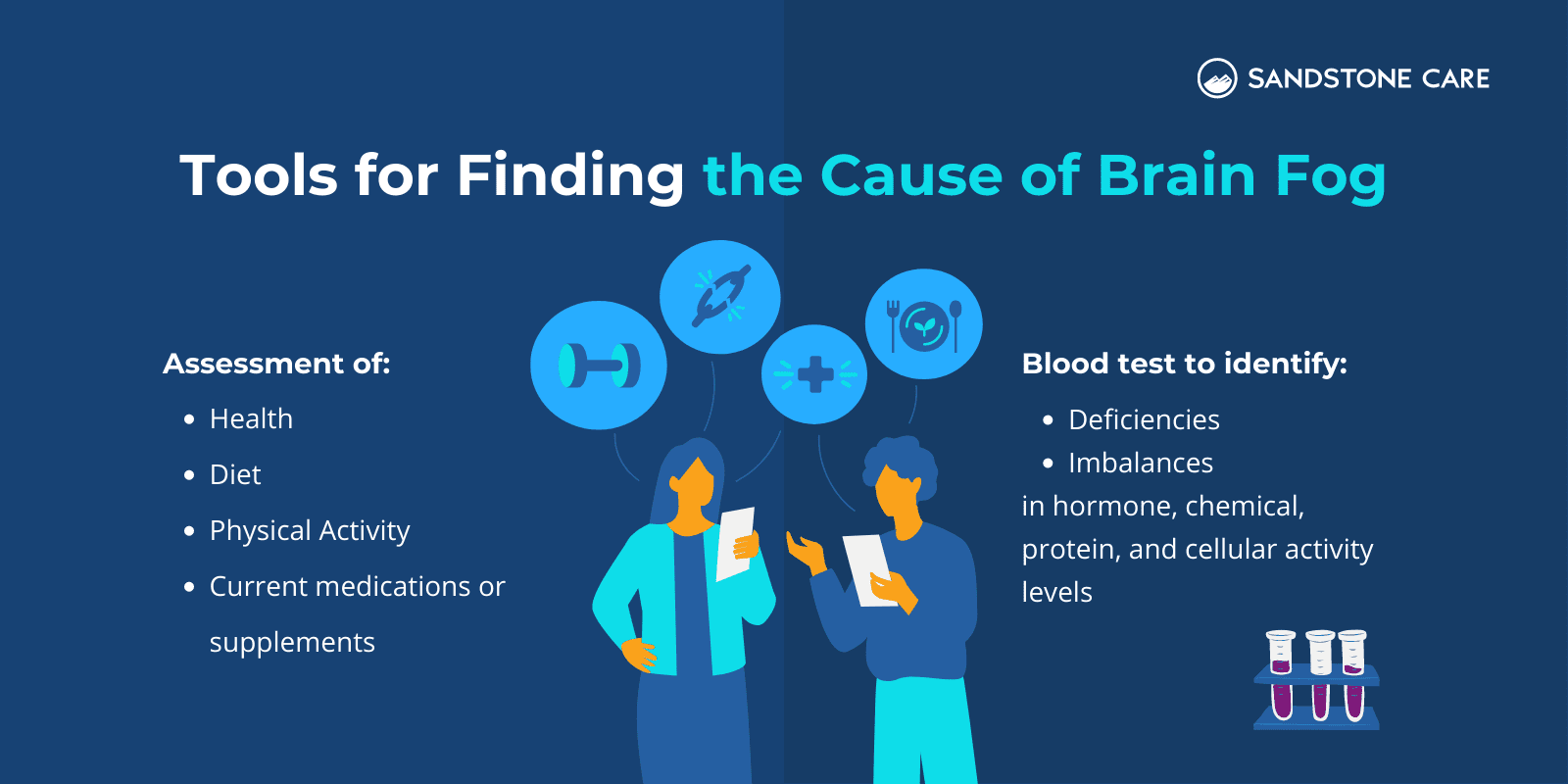
Yes, medications and drugs can cause brain fog.
Many medications can contribute to sleep problems, thinking problems, and brain fog.
If you are taking a medication and experience feelings of brain fog, you should let your doctor know so that they can give you medical advice.
Medications and drugs that may make a person foggy can include:
Some people who have also undergone cancer treatment may experience cognitive impairment similar to brain fog, known as “chemo-brain.”
Both prescription and non-prescription medications can cause side effects of mental confusion.
This can include antihistamines, antidepressants, sedatives, tranquilizers, anticholinergics, antispasmodics, and more.
With covid-19 pandemic, the conversation about brain fog has been on the rise.
People recovering from covid-19 have found themselves experiencing brain fog, trying to pinpoint where it came from.
Some may experience brain fog for a short time after getting covid, while others may have brain fog that lasts for weeks, months, or even longer after a person has recovered from covid-19.
Sometimes symptoms of long covid may go away and come back.
It can be hard for healthcare providers to diagnose symptoms that result from long covid because there are no tests that determine if your symptoms or condition are a result of covid.
It is important to communicate with your healthcare provider about all your symptoms and any new problems that may occur.
More research is being done to better understand long covid conditions so that researchers can also understand the most effective treatment approaches.
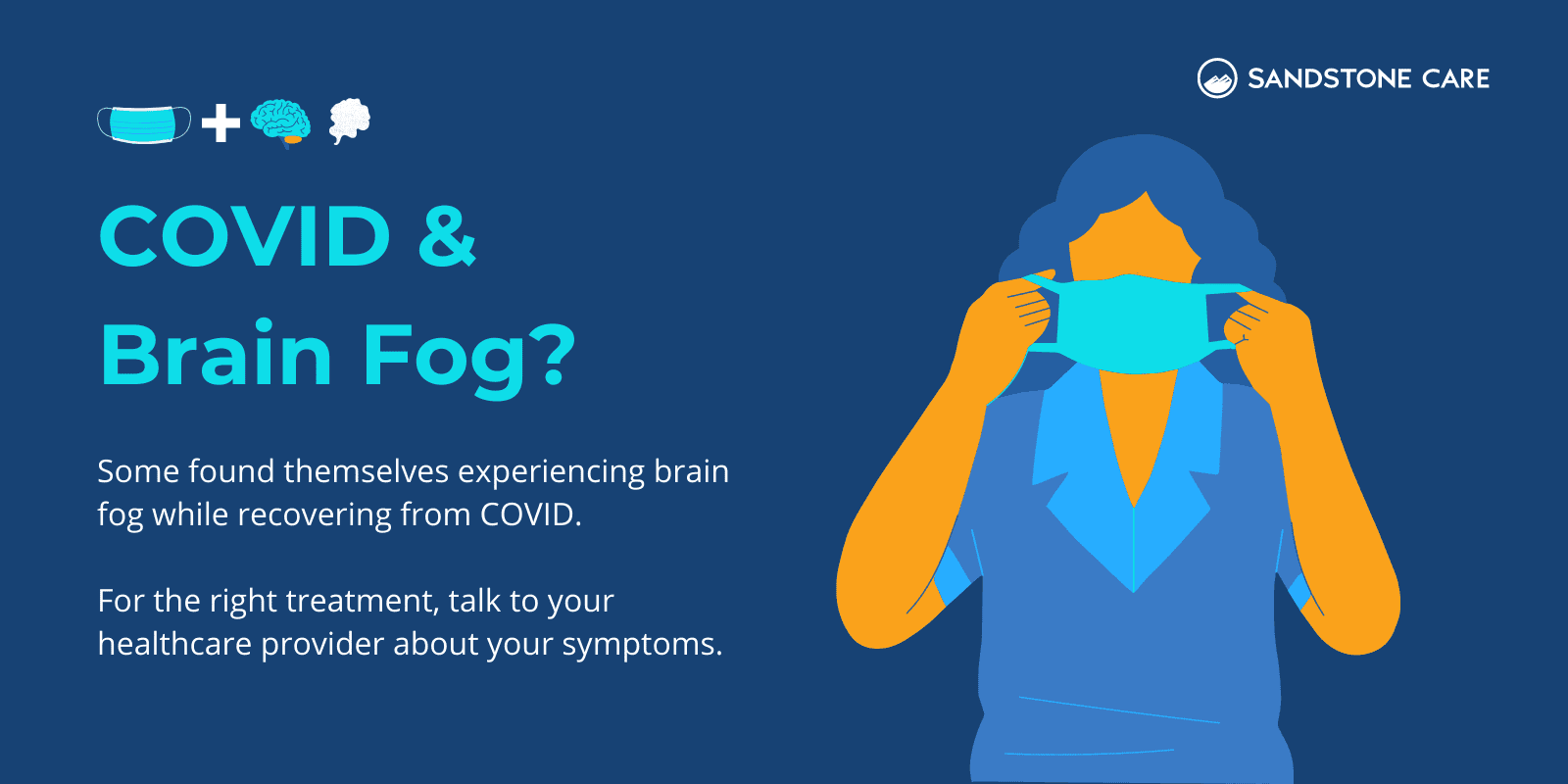
Individuals experiencing the effects of long covid-19 have found changes in their memory, focus, and cognitive function since recovering.
Brain fog is a common symptom of long covid-19, along with difficulty breathing, heart palpitations, sleep problems, and mental health conditions such as depression or anxiety, according to the CDC.
Some ways to help manage the feelings that come along with brain fog can include:
If you believe you are experiencing brain fog as a result of the coronavirus and the feelings persist or even worsen over time, you should consult with a healthcare provider to get professional advice.
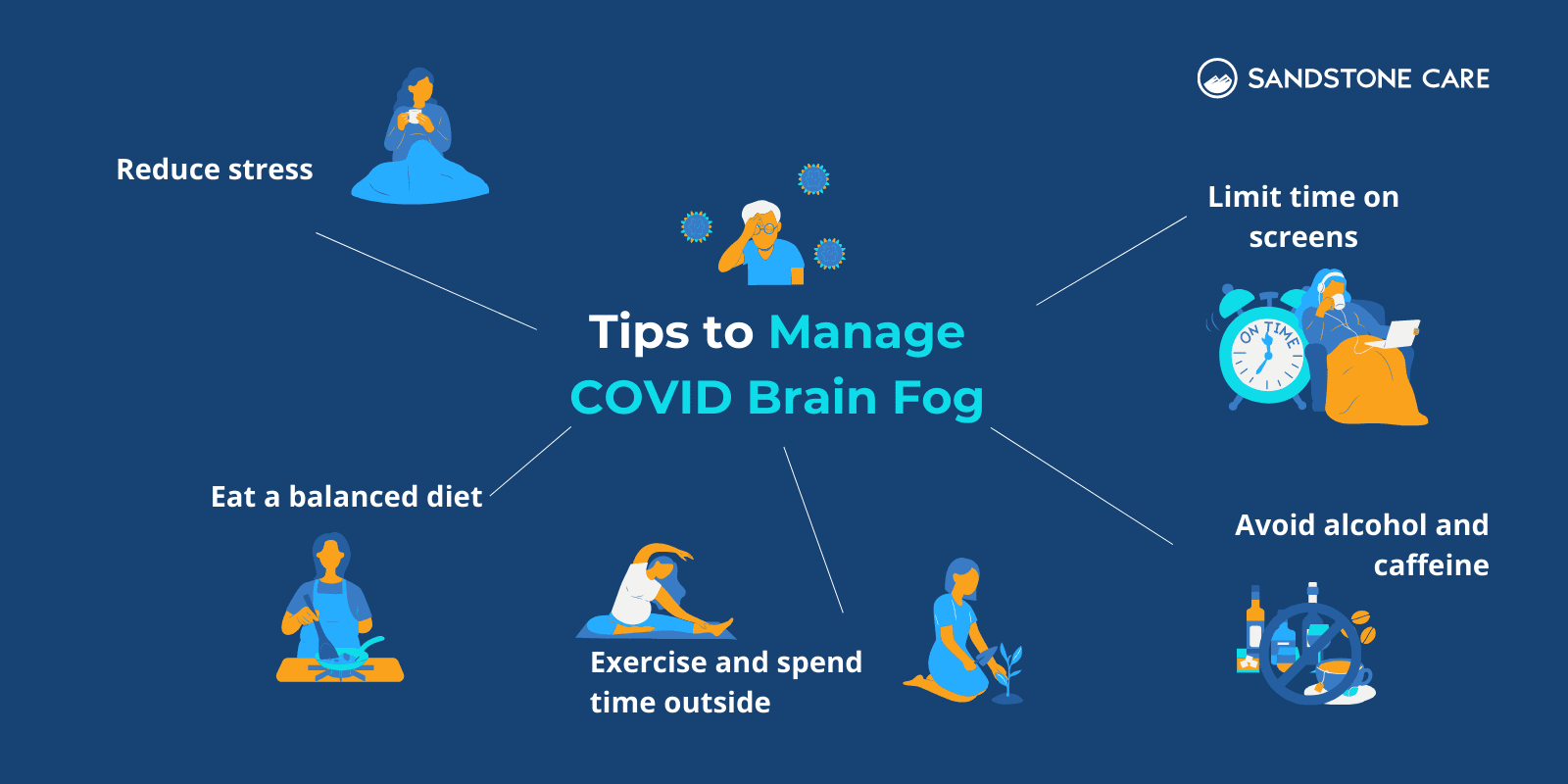
For some people with brain fog, it may go away on its own.
However, for others, it may worsen with time if the root problem is not treated.
Brain fog, for some, may last for days, while others last for weeks, months, or even longer.
Finding the best way to treat brain fog starts with understanding where it may be coming from.
For example, if it is anxiety that is causing the brain fog, a person would likely benefit from therapy to address the anxiety and learn how to understand and cope with it.
Through therapy, a person can learn how to understand their thoughts, feelings, and behaviors, and also develop healthy coping mechanisms and gain clarity.
Getting good nutrition through your diet is an important natural remedy for brain fog.
Brain fog commonly stems from imbalances in hormones or deficiencies in certain nutrients in the body. By eating a healthy, balanced diet and keeping hydrated, a person can help bring their body and mind back into balance.
Other natural remedies for brain fog can include:
You should also talk to your doctor if you plan on taking any supplements to help with brain fog and to ensure the safety of their use.
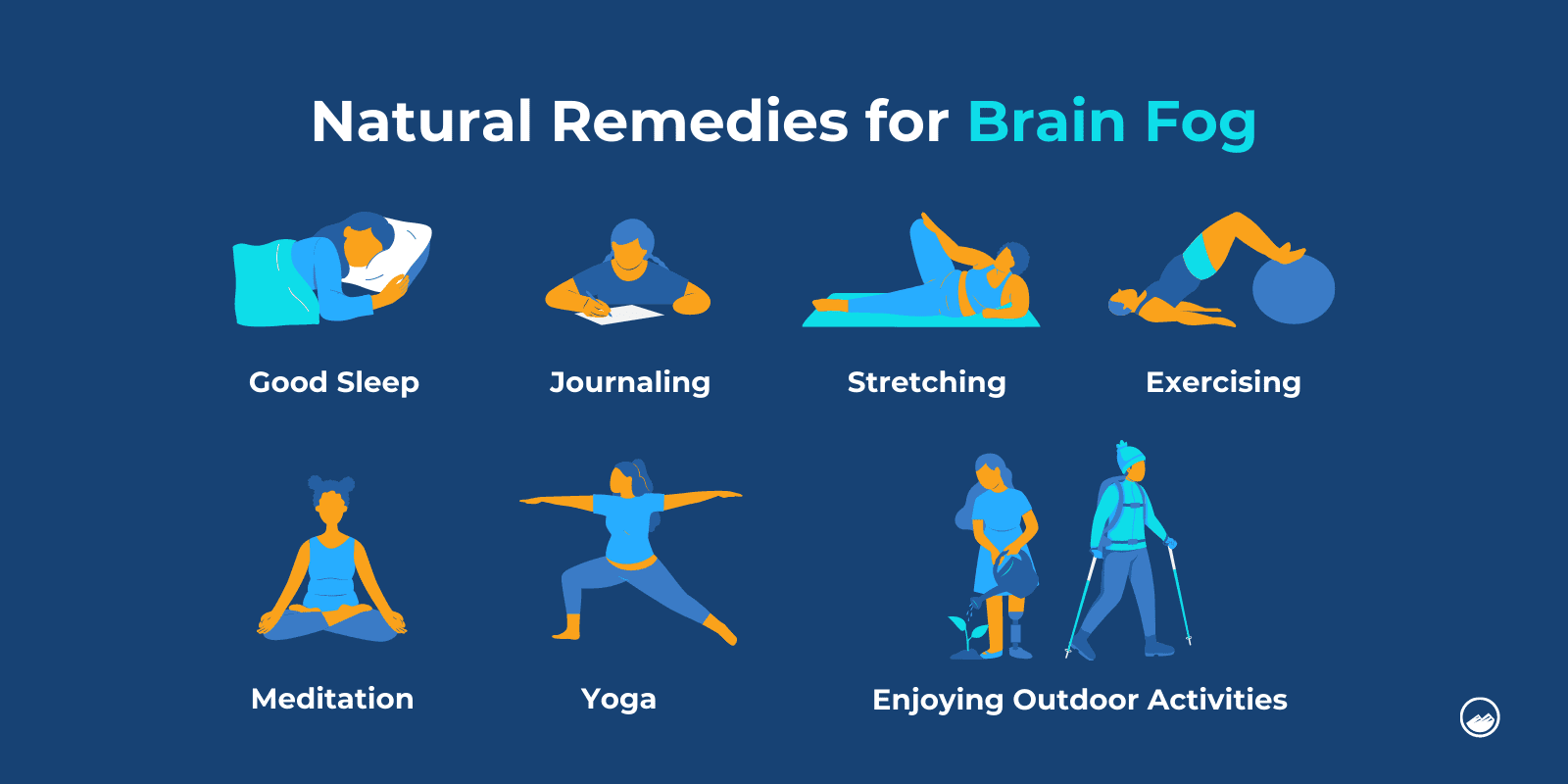
While brain fog is fairly common, it can be a symptom of something potentially serious.
You should seek help and possibly see a neurologist if your feelings of brain fog persist or worsen over time.
A neurologist can perform appropriate tests and can help determine if there are any underlying neurological conditions that may be causing brain fog.
Vitamin D is an important nutrient that plays a role in the immune system, brain health, and more.
Individuals who are vitamin D deficient may often see negative effects on their cognitive functions and experience depressive symptoms, poor concentration, and memory problems.
Other vitamins that may help improve problems that come with brain fog can include omega-3 fatty acids, magnesium, and vitamin C.
However, it is important to consult with your doctor about the safety and effectiveness of taking vitamins as a remedy for brain fog, especially if you are taking any medications. Research is still being done to determine how effective supplements are in reducing brain fog.
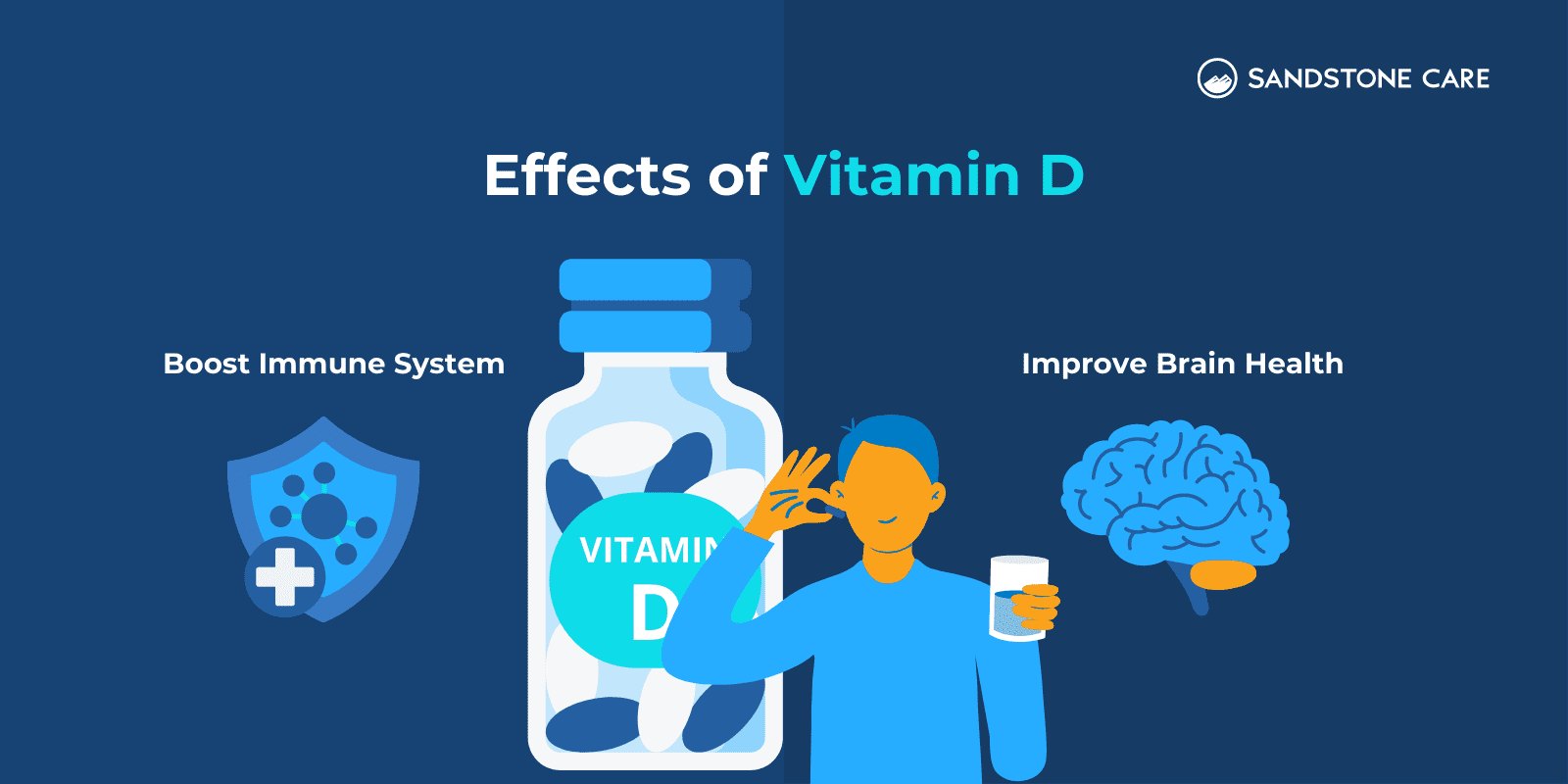
There are currently no medicines approved for use in treating brain fog.
To fix fatigue and brain fog, a person should focus on building healthy habits and taking care of their mind and body.
Eating a balanced diet and making sure your body is getting what it needs is a big part of both physical and mental health.
Movement and exercise can help reduce feelings of stress and depression and improve a person’s mood.
Additionally, getting enough sleep plays a big role in a person’s energy and mood levels.
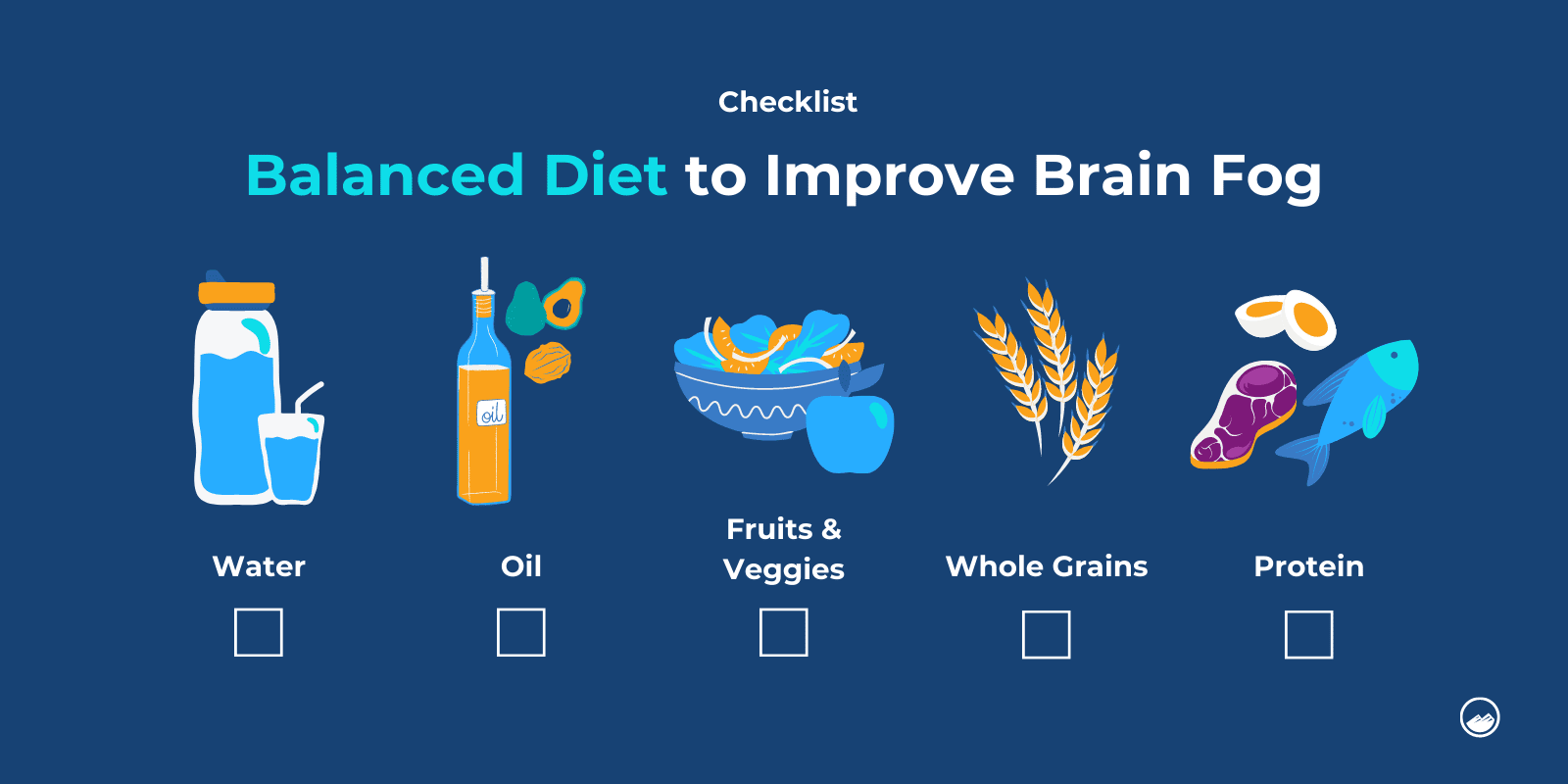
Some people also tend to overlook the importance of interaction and connection with others.
When the covid-19 pandemic hit, people became isolated and lost a large sense of human interaction and connection.
Through talking and connecting with others, a person can find clarity, comfort, and understanding.
Many people tend to overwork and overexert themselves, which begins to affect both their physical and mental health, even if they don’t notice it right away.
One of the biggest things a person can do when they feel fatigued or mentally fuzzy is to give themselves a break and take care of themselves. Sometimes, people need to take time to reset and relax in order to find clarity and understanding.
FAQ
Our goal is to provide the most helpful information. Please reach out to us if you have any additional questions. We are here to help in any way we can.
A person who is experiencing brain fog commonly feels both physically and mentally fatigued.
While the two are not exactly the same thing, they can lead to each other. A person who is exhausted or fatigued may experience brain fog, and a person who has brain fog may feel fatigued or tired.
Myalgic Encephalomyelitis, also known as chronic fatigue syndrome, is a complex illness that can become debilitating and confine a person to their bed.
Chronic fatigue syndrome can make a person unable to function as they did before and make it hard to do simple daily tasks.
Many people with chronic fatigue syndrome report cognitive dysfunction and an inability to think clearly, which many people describe as brain fog.
Brain fog can be a symptom of numerous conditions, such as:
In some cases, brain fog may be a symptom of a vitamin deficiency.
A lack of vitamin D, vitamin B12, or omega-3 fatty acids may play a role in experiencing brain fog.
Some people may also experience brain fog as a result of a lack of sleep. A person may overexert themselves and overwork to the point where they become mentally and physically fatigued.
Brain fog is not a medical condition or mental health disorder.
It is a term used to describe feelings of mental fuzziness, mental fatigue, and forgetfulness.
Brain fog is not a type of anxiety but can be a symptom of anxiety.
Some individuals with anxiety may experience feelings of brain fog.
In order to get rid of it, you have to treat the root of the problem.
This means that a person should seek anxiety treatment. By treating the root of the problem, a person can reduce the symptoms that come along with it.
Hypothyroidism is a condition in which the thyroid gland does not produce enough thyroid hormone.
One of the symptoms of hypothyroidism can be brain fog, which is characterized by a variety of cognitive symptoms such as difficulty concentrating, memory problems, confusion, and difficulty with verbal communication.
People with hypothyroid brain fog may feel like they are in a constant state of mental fatigue and have trouble focusing on tasks or remembering things.
They may also have difficulty with verbal communication, such as finding the right words to say or having trouble forming coherent sentences. They may also feel a general sense of confusion, disorientation, or forgetfulness.
For some people, brain fog may go away on its own.
Others may find that it persists. At this point, a person should seek help to determine what is causing the brain fog.
If the brain fog is a symptom of an underlying condition and not just a mild and occasional feeling, it may not go away on its own until the root cause is addressed and treated.


Brain fog involves feelings of mental fuzziness, mental fatigue, and forgetfulness than can be an indicator of an underlying condition. Sandstone Care is here to support teens and young adults with mental health and substance use disorders.